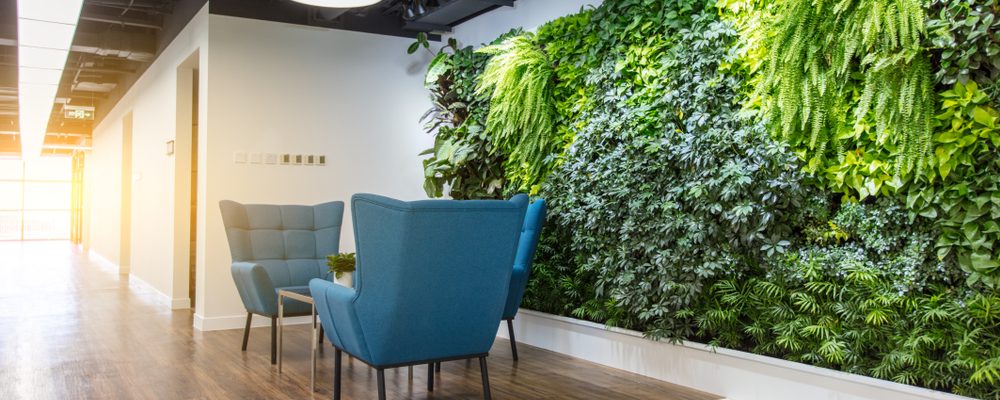Walking along the beach, hiking a mountain trail, perusing a park, floating a river. Whatever your favorite method, there’s just something about the way that spending time outside in nature can make a person feel more at ease and centered. But, in the hustle and bustle of modern office life, a harmonious connection with nature often takes a backseat. However, as we strive to create healthier and more productive work environments, the concept of biophilic design is gaining significant traction. Imagine an office space that not only exudes elegance through its lighting but also seamlessly integrates elements from the natural world. Welcome to the realm of biophilic design, where offices are transformed into vibrant, invigorating spaces that blur the lines between indoors and outdoors.
The Biophilic Approach
Biophilic design is more than just a buzzword; it’s a philosophy that centers around human beings’ innate connection with nature. The term itself originates from “biophilia,” a concept coined by biologist E.O. Wilson to describe the inherent affinity humans have for the natural world. Biophilia is more than just an eco-friendly trend, it’s seen in all aspects of our life. People pay top dollar to live in homes that are near the ocean or a lake, that have an incredible view of the mountains or other scenery. Even in the heart of an urban city, the most coveted workspaces are always the corner office with a view – the need to connect with nature is in our DNA.
In the context of office spaces, studies have shown that biophilic design can improve cognitive performance, reduce stress, and increase perceived productivity. biophilic design seeks to integrate nature-inspired elements, such as natural light, indoor plants, flowing water, and earthy materials, into the architectural and interior design. It’s not quite as simple as adding a fake tree to the corner of your office space – it’s about finding ways to make you feel more connected to or in balance with nature while you’re there.
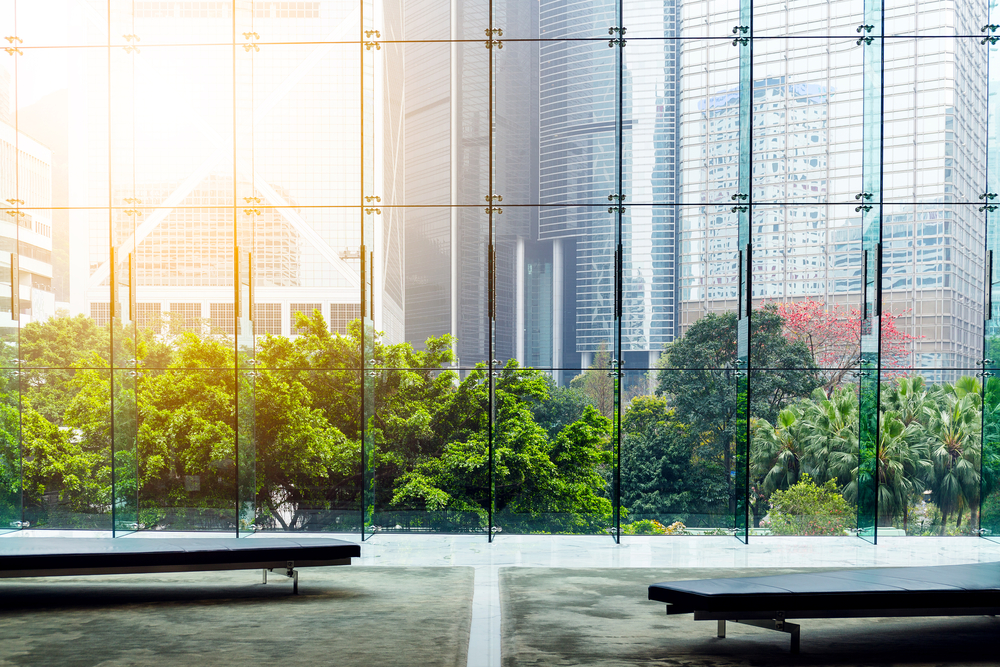
Natural Light
Lighting is a cornerstone of biophilic design. Natural light is not only energy-efficient but also has numerous benefits for employee well-being. It regulates the circadian rhythm, boosts mood, and enhances productivity. When incorporating natural light into office spaces, consider large windows that allow ample daylight to flood the interiors. Take advantage of your view – simply making sure any plants or trees outside your windows can be seen from inside will enhance the design of your office space with minimal effort.
When altering windows isn’t an option, consider choosing window treatments that allow natural light to enter where possible. Use mirrors or reflective surfaces in strategic places to help reflect natural light throughout the space.
Artificial Light
Complement your natural light with adjustable artificial lighting that mimics the changing qualities of natural light throughout the day. Choose light fixtures made from natural materials and have organic shapes. Consider making the swap to LED. LED bulbs are energy efficient, and they come in a wide range of colors that mimic natural light. Smart LED bulbs can be programmed to change throughout the day to help create a more natural feeling in the office than you can achieve with fluorescent tubes.
Indoor Greenery
Plants have a remarkable ability to purify the air and infuse spaces with a sense of vitality. Including greenery in the office doesn’t just serve an aesthetic purpose; it also promotes cleaner air, reduces stress, and improves concentration. Vertical gardens, potted plants, and hanging planters can transform sterile office corners into lush oases, contributing to a more relaxed and creative atmosphere. Not all plants are created equal – be sure to choose varieties that will flourish in their location in the office, taking into account the natural light and care requirements.
While natural plants are always best, they can be difficult to keep in some office spaces due to light or care requirements. In these situations, high-quality artificial plants can help to fill out the space. Try mixing them in with live plants to get the same look with less maintenance.
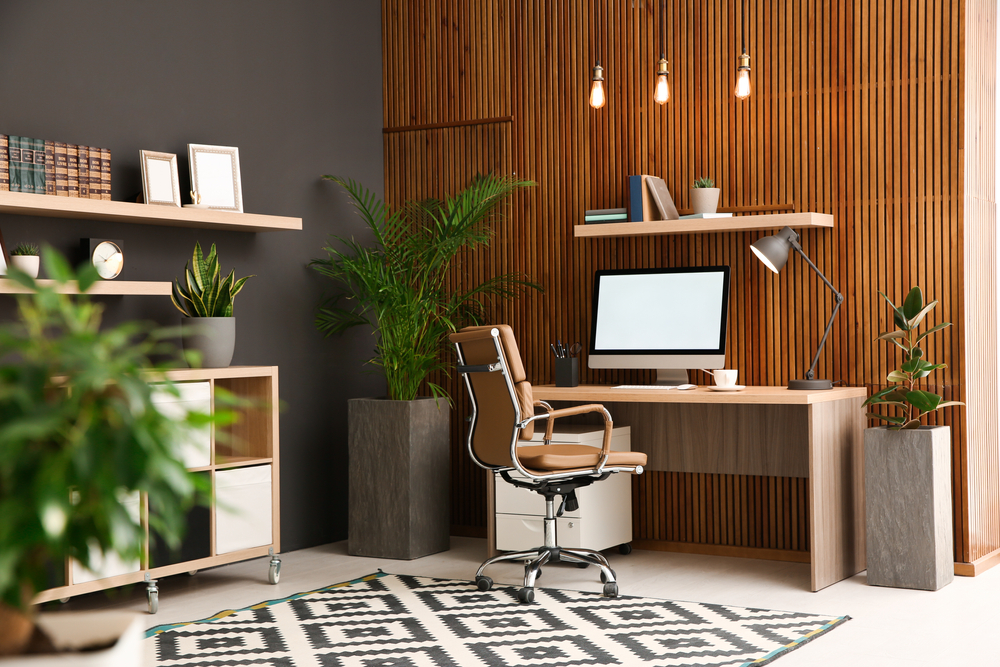
Organic Materials
The materials used in office interiors play a vital role in biophilic design. Wood, stone, and other natural textures evoke a tactile connection to the environment. Incorporating these materials into furniture, flooring, and decor elements can instill a sense of warmth and grounding. Such an environment fosters a feeling of comfort and tranquility, helping employees feel more connected to their workspace.
Look for practical ways to upgrade what you have – opt for wood furniture rather than wood veneers, ceramic over plastic pots for plants, stone tile over vinyl, natural fabrics over synthetics, etc.
Water Features
The soothing sound of flowing water has a mesmerizing effect that can elevate the office experience. Incorporating water features, such as indoor fountains or reflecting pools, can contribute to a sense of calmness and serenity. The gentle sounds of water can also mask unwanted noises, creating a more peaceful working environment.
Not all fountains are created equal – keep the overall soundscape of your office in mind. A noisy fountain in a small space will cause sensory overload for employees rather than boost moods.
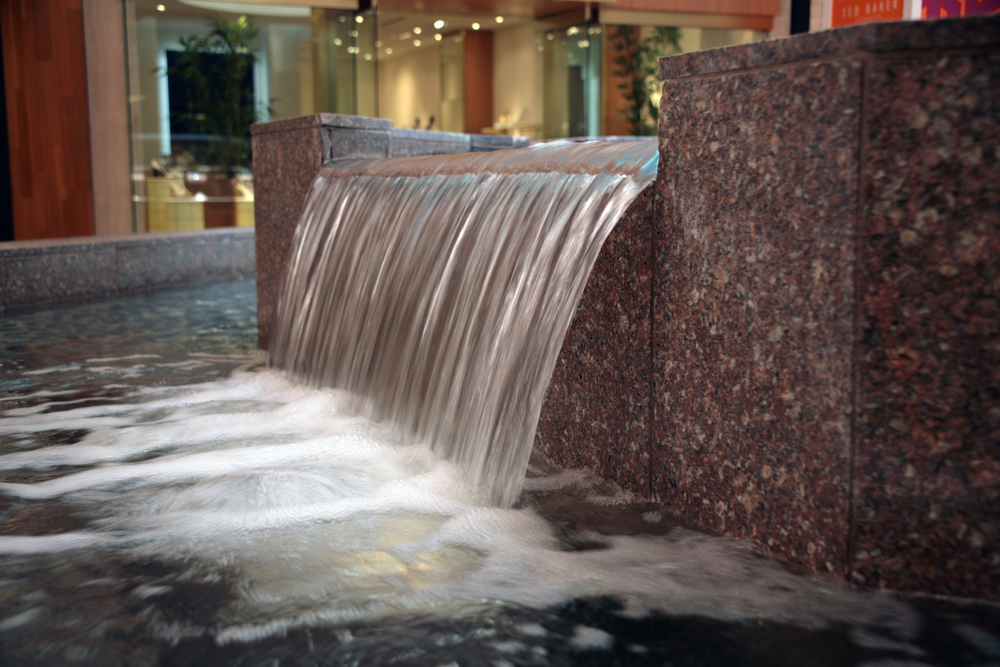
Soundscape
In the realm of biophilic design, sound is a vital piece of nature-infused workspaces. The soft murmur of indoor fountains and cascading water walls can soothe and enhance focus, while subtle nature soundtracks can help foster creativity. It’s all about striking a balance, blending work-related noises with nature-inspired sounds, and creating an environment where tranquility and functionality can coexist seamlessly.
Thoughtful acoustic design will refine the soundscape by managing noise levels. Use sound-absorbent materials throughout the office to minimize echoes and avoid sound overlap that can drown out important conversations or interrupt a creative process. One of the most common complaints of workers in an office environment is noise levels – so fine-tune your soundscape carefully to achieve a good balance for each section of your workspace.
Creating Balance
Biophilic design emphasizes nature, but it’s crucial to remember that the main focus isn’t just to bring the outside in – it’s to create balance. You can’t just fill an office with plants and call it a day – the key is to strike a balance between natural and technological elements. Remember to pay attention to the less visible environmental elements as well – look into integrating technology for air quality monitoring and humidity control to ensure that the indoor environment remains comfortable and healthy.
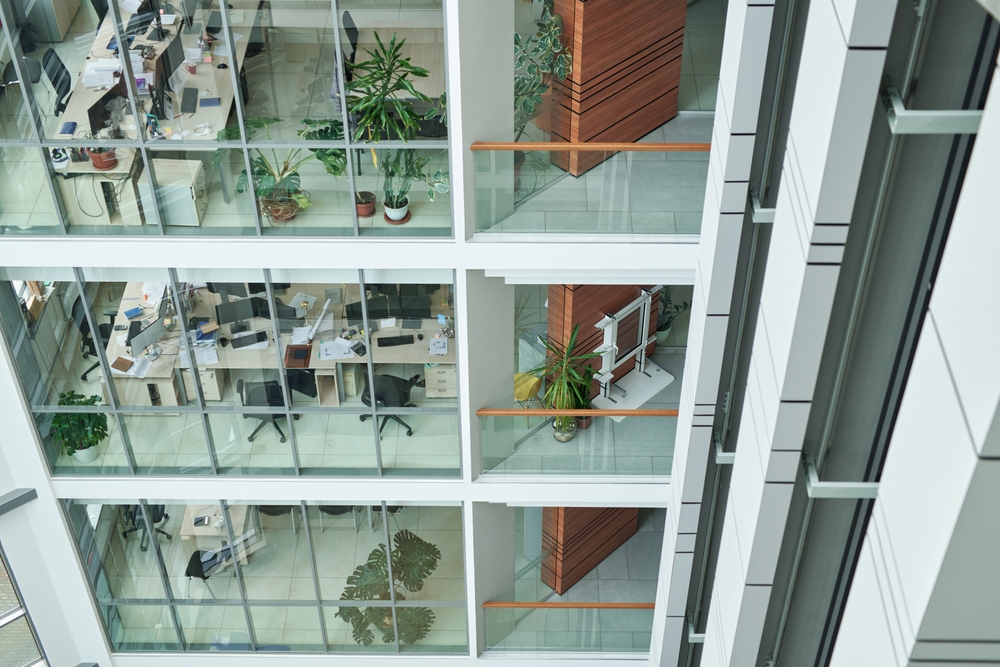
Biophilic design represents a paradigm shift in how we perceive office spaces. By merging the principles of nature with innovative lighting solutions, interior design, and sustainable materials, we can craft work environments that prioritize human well-being and productivity. As we embrace the concept of biophilia, we move closer to a future where offices aren’t just places of work but also sanctuaries of inspiration and vitality. So, let nature’s light shine through your office windows, and watch your workspace transform into a biophilic marvel.
Remember, at Muska Lighting, we’re passionate about creating lighting solutions that align with the principles of biophilic design. Step into our showroom to discover a world where technology and nature coexist in perfect harmony, illuminating the path to a greener, more inviting office space.
